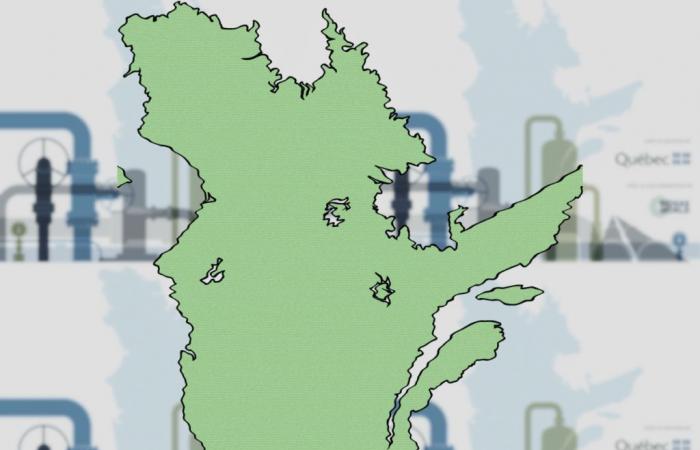Quebec’s strategy for reducing greenhouse gas emissions provides for the gradual replacement of fossil natural gas with gases from renewable sources. However, not only will this solution not be possible without massive intervention from the State, but there is a risk of running out of renewable gas to meet the province’s energy needs, according to a recent analysis.
Renewable natural gas (RNG) is still far too expensive to form an economically viable solution to replace natural gas from fossil sources without other economic incentives, according to a recent report from the Chair of Energy Sector Management at HEC Montréal .
Indeed, RNG trades at around $25 per gigajoule (GJ) of potential energy, while fossil natural gas is around $3 per gigajoule. A gap far too large for companies to consider making the transition without having other incentives to encourage or constrain them, underlines Pierre-Olivier Pineau, co-author of the report.
“In a theoretical world, we would not act with subsidy programs for GNR,” warns the researcher. “We would make fossil fuels too expensive to use, and we would tell people “you can’t bury your residual organic matter, you have to recycle it”. »
AN ALTERNATIVE SOLUTION TO FOSSIL ENERGY
Currently, RNG mainly comes from the methanization of residual organic matter (the contents of brown bins and agricultural residues), which is first transformed into biogas, then refined to obtain methane of sufficient purity to be integrated into existing gas distribution networks.
Doing this helps avoid burying organic matter in landfills, which directly releases methane – a gas which, at equal volume, contributes 25 times more than CO2 to global warming – in the atmosphere.
The methane that becomes GNR, when it is then burned in the network, still emits CO2but this, in addition to being less damaging than the original methane, is considered to have a net zero effect on global warming, since it releases the carbon that had been captured during the production of organic matter . For example, when a corn plant grows, it captures CO2and it is this same CO2 which will be released when the cob is transformed into GNR and then burned.
According to Quebec’s strategy to combat climate change, RNG must mainly be used to replace natural gas of fossil origin, particularly in industrial processes that are difficult to electrify and in factories that cannot obtain enough electricity to operate. decarbonize.
Limited potential production
Currently, only approximately 5% of residual organic materials generated in Quebec would be recycled into RNG, according to Recyc-Québec calculations.
In addition, for the moment, 90% of the RNG produced in Quebec is sent to the United States, where the tax regime and financial incentives to encourage companies to use this product are more attractive.
But above all, technically, this means that at best, Quebec could produce 20 times more RNG than at the moment, which would bring total production to around 2 billion cubic meters per year. However, current consumption of natural gas in the province is closer to 6 billion cubic meters.
We would therefore have to reduce our consumption of natural gas by two thirds if we want to hope one day to replace all of Quebec’s fossil-source natural gas with RNG.
For unlimited needs
“Is it possible? » asks Pierre-Olivier Pineau. “Technically, yes, but it’s completely socially unrealistic,” laments the researcher.
According to him, we are simply too big consumers of energy to free ourselves from fossil-source gas and there is nothing to show that we would be able to correct the situation.
Remember that Canada has just been ranked penultimate country in the world for its energy consumption per capita, according to the German Watch energy performance index, which is the benchmark in this area.
For Pierre-Olivier Pineau, the only way for Quebec to reverse the trend would be for the government to implement a series of much more severe measures towards people and businesses that consume a lot of energy, in particular by radically increasing the price to pay to use fossil fuels.
“However, this is not realistic in the Santa Claus society in which we live where governments constantly want to give gifts to voters,” he notes.
However, in his eyes, without measures discouraging the use of the most polluting energies, it is naive to believe that consumers will move away from them and allow Quebec to achieve its objectives. “It’s like saying to someone: we want you to run the marathon, but you don’t need to train, we’ll give you a motorcycle or a ski-doo so you can get to the finish line. arrival,” he illustrates.






